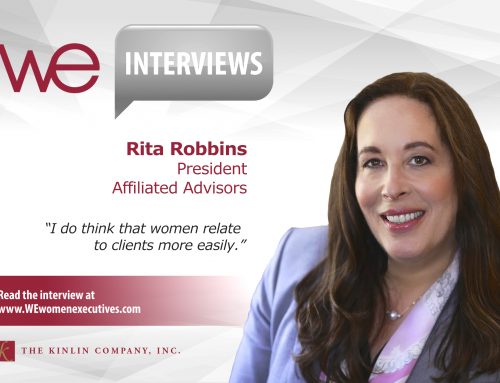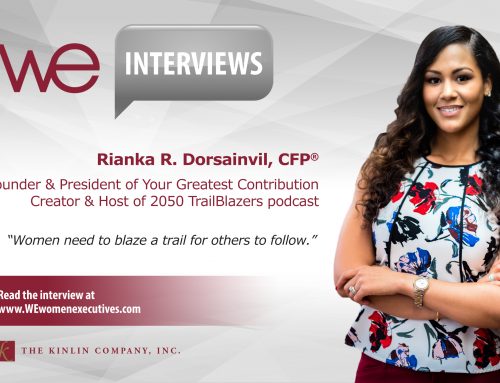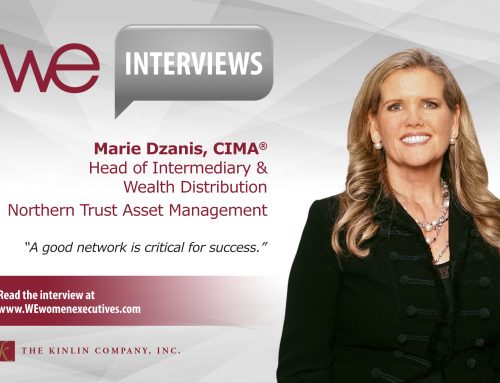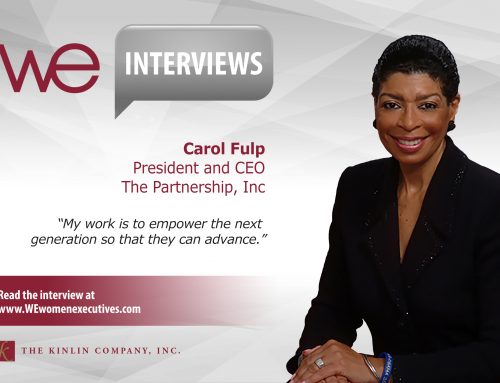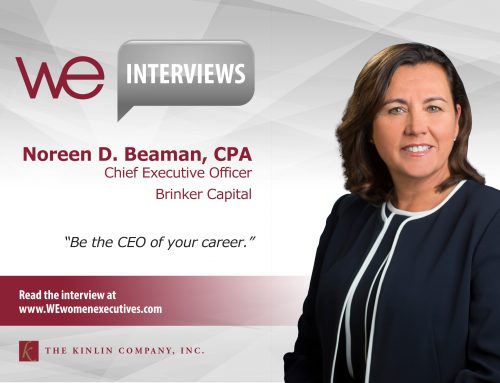 Michelle R. Seitz
Michelle R. Seitz
CEO
William Blair Investment Management
Michelle R. Seitz, CEO of William Blair Investment Management, decided the financial services industry was for her the moment she visited a trading floor. Her advanced chemistry class was on a field trip from their small town in Indiana to Chicago’s Museum of Science and Industry. “The teacher thought it would be interesting if we also visited the Board of Trade,” Seitz explained to me when we met last December. “The energy on the trading floor captivated me. I knew immediately it was where I wanted to be.”
An Opaque Industry
Seitz went on to major in business as an undergraduate at Indiana University, where she impressed the Graduate School’s Professor of Finance with her eagerness to learn the world of investing. She ended up auditing his investment courses and accompanying the MBA students on their journey of exploratory interviews and panel discussions with potential employers.
While she had numerous interviews under her belt, Seitz explained that she didn’t really grasp the difference between the various tracks that were available to her. “If it were up to me,” Seitz said, “I would have taken a two-year investment banking analyst job. However, not having attended an Ivy League school, it was a challenge to get into that pipeline.”
Instead, she landed a portfolio management role at North Carolina National Bank (NCNB.) She was hired in the summer of 1987, and by that fateful October, Seitz said, “I was managing $800 million with full autonomy and full discretion, baptism by fire.”
“I entered the investment world through money management because I didn’t know any better, but it was a brilliant career move. The industry is rather opaque to graduates. Most people starting out in their careers aren’t as aware of it as a possible field as they really should be,” Seitz said.
Money Management: A Great Career for Women
Seitz is still very active with her alma mater. “I sit on the Advisory Board for the Investment Management Academy of the Graduate School of Business and I’ve hosted the MBAs for an onsite every year for the last fifteen years. Sadly, there are very few women among the students, around one to three a year it seems. As a result, I don’t see much of a pipeline.”
According to Seitz, more education and information are needed in order to recruit women into the asset management field. “I think money management is a great career for women who intend to have a family. I have five children ages 6-14 and, while every career is demanding, I have found it manageable.”
There’s No Such Thing as Work/Life Balance
When I asked Seitz how she managed to start a family while growing her career, she quickly admitted that she did not have a grand plan for five kids. “If you overthink it then you’ll never do it.”
“I always had a support system and could afford a nanny. My husband is incredibly supportive and an equal parent. You have added limitations if you don’t have the resources for the infrastructure she said.
Though Seitz has a demanding career, active outside board commitments, and a family, she believes that the discourse about work/life balance can sometimes be both insular and counterproductive.
“The entire debate has no relevance for most of the world,” Seitz told me. “The vast majority of people have jobs, they have children, and they figure it out. Most people have to work; they don’t have the luxury of choice. That’s why I think it sometimes becomes a very entitled conversation. The conversation about why so few woman break into the upper echelons of management is a separate issue.”
Seitz continued, “I was raised by a single mother, who often had two or three jobs at a time. She was admirable. The answer to, ‘How do you work and still have a family?’ is simple for most people. You do what you’ve got to do.”
The Art of Out Sourcing
For Seitz, the most dangerous trap a working woman can get into is not understanding her priorities. “You must be vicious about your prioritization,” she explained. “You can have it all. You just can’t have it all, all of the time.”
Though, those priorities are always shifting. “Sometimes you’ll be consumed by work. Other times it is you, your child, or, your spouse. Life happens.” Seitz said. “You figure out what requires your complete focus, and then you have to choose what to sacrifice. Sometimes your career has to slow down, or you have to outsource more, but it’s important to remember that you can’t outsource the relationship you have with your kids.”
In order to make sure her priorities are supporting the life she wants, Seitz has an annual check-in with herself during which she asks herself three questions:
1. Am I The Best Person To Do This? Seitz explains, “I ask myself, am I the only person, the best person, to do this? The answer is no more often than one might choose to admit.” She tries to outsource the things that others can do.
2. What Is Important To Me? Do I enjoy doing it? Am I learning and growing from it? Does it energize me or drain me?
3. What Is Important To The People Who Matter Most To Me? There are some things I need to do simply because I know how important it is to others that I be the one to do it. The big things are the easy catches. It is the simple, everyday things, those that have a habit of slipping by you, that can often matter the most. Having your radar up, asking the people in your life what they want, is crucial.
Four Tips for Women in Asset Management
The fact that money management is such a male-dominated industry has never negatively impacted Seitz. But she has seen that some of her female colleagues have failed to thrive in what can seem a “clubby” work environment. When I asked her what advice she would share with a young woman just starting out in the industry, she shared the following:
1. Be Very Self-Aware: “The key to money management is being very centered on who you are. It is a probabilistic field and you’re going to fail a lot. You have to have faith in yourself, self-awareness, and the ability to go it alone.”
2. Leave Emotion At The Door: “A talented money manager must have a high logic capability and be able to zone out the emotion in decision making. The most brilliant money managers can remove themselves from group think and make very independent decisions.”
3. Have Children If You Want Them: “This is an amazing field for women. Your career choices should not stop you from experiencing the natural pleasures in your life such as having children. Once you have them, you must be able to prioritize correctly to get the benefit of having that family.”
4. You Don’t Have To Be One Of The Guys: “There is a guy’s world at work that I’m not a part of and I am very OK with that. Honestly, I hardly even notice it. My male colleagues make up some of my closest friends, but I don’t think they would consider me one of the guys. It’s important to stay true to who you are, but understand the need to be part of a team.”
Before we ended our conversation, Seitz told me a story that was a perfect real-world example of the way she navigates her busy, demanding life. She was going to work, and, just as she was going out the door, her young son wanted to read a book to her. Knowing how important that moment was both to her and her son, she called her assistant to have all her meetings pushed back thirty minutes.
“If I did that all the time, I wouldn’t have the job I have,” Seitz said. “Yet, I did it because I knew it was important, and I have the self-confidence and the confidence of my partners that it won’t prevent me from fulfilling my part of the bargain.”

